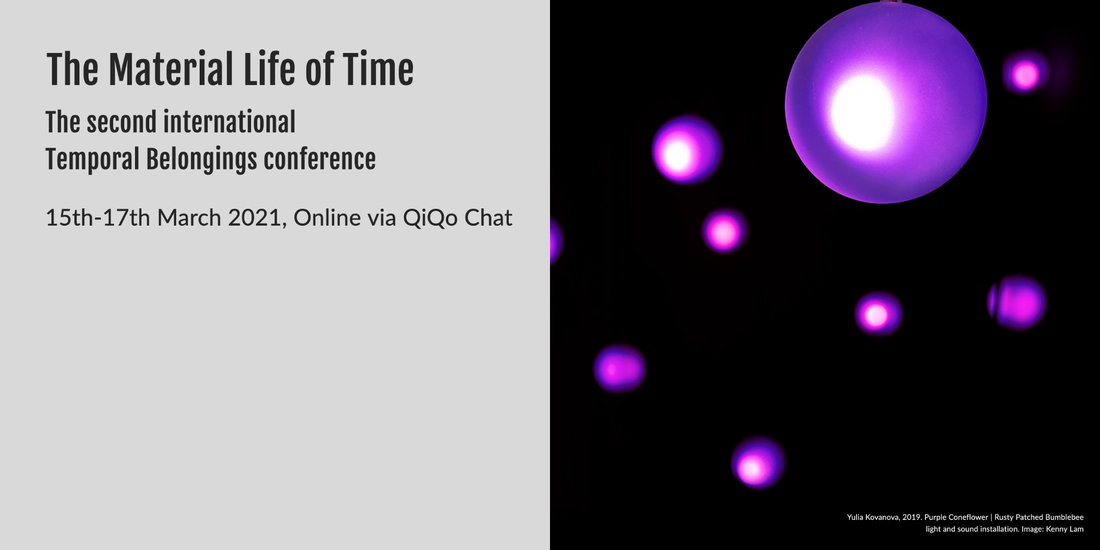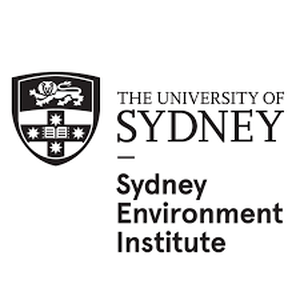Why we ran our event online
Article reflecting on the event design and its support for socialising and networking
now available from Geo: Geography and Environment
Article reflecting on the event design and its support for socialising and networking
now available from Geo: Geography and Environment
|
|
Much of the time of our lives is given to us by the relationships, properties and movements of worldly materialities. Atmospheric carbon has irrevocably transformed agricultural time (Kassam et al 2018), microplastics are queering reproductive time (Davis 2015), dissolvable sutures have remade the time of health, while rare earth minerals make possible the mobile phones at the heart of debates around acceleration and time squeeze (Wajcman 2008). In all of these ways and more, we see material objects — their uses, cost, manufacture, changing composition and characteristics — at the heart of modern debates about how time should be used, lived and valued.
|
A deeper recognition of the material lives of time thus attunes us to questions of how times are being made, where its materials are coming from, who or what is being displaced in the process, and what kinds of material practices are being called forth. How does the global race for resources in a time of climate breakdown, including for oil, gas, arable land and fresh water, make new times of migration, colonialism and dispossession? How are new bio- and medical technologies affecting embodied temporalities? How are particular generational, political or bureaucratic times out-of-synch (or not) with geological times, biological times or ecological times, and what are the consequences? What kind of resonance do concepts such as ‘modernity’, ‘post-modernity’, ‘growth’, ‘recession’, ‘crisis’ and ‘acceleration’ take on from this perspective? What kinds of speculative futures are being produced and for whom (Keeling 2019)?
‘Materialising’ time also works back on concepts, approaches and methods for studying time by calling into question the dualistic treatment of ‘social time’ and ‘natural time’ which has structured a significant proportion of work on time (Adam 1994). We are asked to rethink key temporal concepts by attending more closely to their material basis and the ways these materials remain, morph, wear away and disappear with changing environments and socialities, “not in a relation of linear unfolding, but threaded through one another in a nonlinear enfolding of spacetimemattering” (Barad 2010). Another set of questions thus revolves around how to study time in its complexity, the difficulties that disciplinarity presents, and what to make of the continual rediscovery that time is not unitary and objective, but multiple and situated.
Working in collaboration with the Lifetimes and the Waiting Times projects and the Sydney Environment Institute, this Temporal Belongings conference will bring together scholars, researchers and practitioners interested in the socialities and materialities of time in order to explore how each is shaped by the other. Our network continues its interest in playing with the traditional time of academic collaboration and so we will include a mixture of presentation styles, and plenty of time for discussion. Collaborative, participant driven sessions will allow themes emerging from the presentations to be synthesised and explored in greater depth. Our conference will take place online via the QiQoChat platform. Using Zoom as its video meeting provider, QiQo enables attendees to move between a number of online meetings easily and to set up their own discussions or meetings as needed. We will be facilitating live synchronous sessions and opportunities for planned and spontaneous interaction with other attendees. You can click through the links above to find out more about how the conference will be organised and the platform.
Keynote speakers for the conference:
Karan Barad (UC Santa Cruz)
On Barak (author of On Time: Technology and Temporality in Modern Egypt)
Karim-Aly S. Kassam (Cornell)
Rahul Rao (SOAS)
Nisi Shawl (author, editor and journalist)
The artwork in our banner comes from Yulia Kovanova's exhibition "Grey to Blue: Ecological Entanglements" which was shown at the Edinburgh Art Festival in 2019. The series explored the spatio-temporalities of embodied colour in multispecies relationships.
‘Materialising’ time also works back on concepts, approaches and methods for studying time by calling into question the dualistic treatment of ‘social time’ and ‘natural time’ which has structured a significant proportion of work on time (Adam 1994). We are asked to rethink key temporal concepts by attending more closely to their material basis and the ways these materials remain, morph, wear away and disappear with changing environments and socialities, “not in a relation of linear unfolding, but threaded through one another in a nonlinear enfolding of spacetimemattering” (Barad 2010). Another set of questions thus revolves around how to study time in its complexity, the difficulties that disciplinarity presents, and what to make of the continual rediscovery that time is not unitary and objective, but multiple and situated.
Working in collaboration with the Lifetimes and the Waiting Times projects and the Sydney Environment Institute, this Temporal Belongings conference will bring together scholars, researchers and practitioners interested in the socialities and materialities of time in order to explore how each is shaped by the other. Our network continues its interest in playing with the traditional time of academic collaboration and so we will include a mixture of presentation styles, and plenty of time for discussion. Collaborative, participant driven sessions will allow themes emerging from the presentations to be synthesised and explored in greater depth. Our conference will take place online via the QiQoChat platform. Using Zoom as its video meeting provider, QiQo enables attendees to move between a number of online meetings easily and to set up their own discussions or meetings as needed. We will be facilitating live synchronous sessions and opportunities for planned and spontaneous interaction with other attendees. You can click through the links above to find out more about how the conference will be organised and the platform.
Keynote speakers for the conference:
Karan Barad (UC Santa Cruz)
On Barak (author of On Time: Technology and Temporality in Modern Egypt)
Karim-Aly S. Kassam (Cornell)
Rahul Rao (SOAS)
Nisi Shawl (author, editor and journalist)
The artwork in our banner comes from Yulia Kovanova's exhibition "Grey to Blue: Ecological Entanglements" which was shown at the Edinburgh Art Festival in 2019. The series explored the spatio-temporalities of embodied colour in multispecies relationships.





